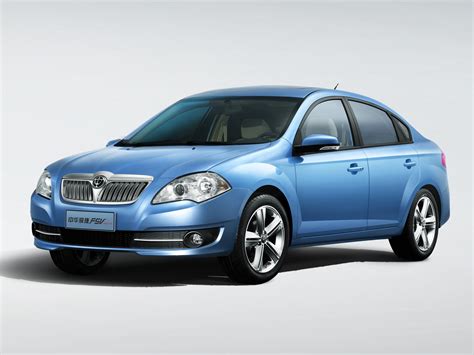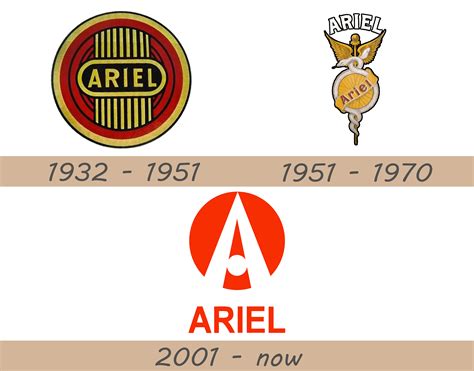Explore Toyota’s early beginnings, innovation, impact on the automobile industry, environmental initiatives, global success, and future plans. Learn about Toyota’s journey to success.
Early Beginnings of Toyota
Contents
In 1937, Toyota Motor Corporation was officially established by Kiichiro Toyoda, the son of Sakichi Toyoda, who founded the Toyoda Automatic Loom Works. This marked the beginning of the automobile manufacturing branch of the Toyoda family business. The company started out as a division of Toyoda Automatic Loom Works, devoted to the production of automobiles under the direction of Kiichiro. It was a humble start for the company, with the first production vehicle, the Model AA, being a copy of the Chrysler Airflow. However, it wasn’t long before Toyota began to develop its own unique designs and technologies, paving the way for its future success in the automotive industry.
Despite facing challenges during World War II, including government intervention and resource shortages, Toyota managed to survive and continued to produce vehicles. After the war, the company shifted its focus to small passenger cars and innovative production methods, setting the stage for its rapid expansion in the years to come.
One of the key early developments for Toyota was the establishment of the Toyota Production System (TPS), which aimed to minimize waste and improve efficiency in the manufacturing process. This system would ultimately become a cornerstone of Toyota’s success, leading to the company’s reputation for high-quality, reliable vehicles.
As the 20th century progressed, Toyota continued to grow and evolve, solidifying its position as a major player in the global automotive market. The early beginnings of Toyota laid the groundwork for its future as a leading innovator and driver of change in the industry, setting the stage for the company’s long-term success and impact on the world.
Innovation and Expansion
Innovation and Expansion
Toyota has been a leader in innovation and expansion within the automobile industry for many years. The company has been at the forefront of developing innovative technologies and manufacturing processes that have changed the way we think about cars.
One of the key innovations that Toyota has brought to the industry is the development of hybrid vehicles. The Toyota Prius, which was introduced in the late 1990s, was the world’s first mass-produced hybrid car. This groundbreaking development paved the way for other car manufacturers to follow suit, and it has had a significant impact on the environmental impact of the automobile industry.
In addition to its innovations in hybrid technology, Toyota has also been a leader in the development of advanced safety features and driver-assistance technologies. The company’s commitment to innovation and expansion has helped to make driving safer and more enjoyable for millions of people around the world.
Toyota’s commitment to expansion is also evident in its global reach. The company has manufacturing plants and sales operations in countries all around the world, and it continues to expand its presence in emerging markets. This global expansion has helped to make Toyota one of the largest and most successful car manufacturers in the world.
Toyota’s dedication to innovation and expansion has had a lasting impact on the automobile industry, and the company continues to be a driving force in shaping the future of transportation.
Toyota’s Impact on Automobile Industry
Since its founding in 1937, Toyota has played a significant role in shaping the automobile industry. One of the key impacts that Toyota has had on the industry is through its introduction of innovative production methods, such as the Toyota Production System (TPS). This approach, which emphasizes efficiency and continuous improvement, has become a model for other automobile manufacturers and has revolutionized the way cars are built.
Additionally, Toyota’s focus on quality and reliability has set a new standard for the industry. The company’s commitment to producing durable and long-lasting vehicles has influenced consumer expectations and has compelled other automakers to prioritize these qualities as well.
Furthermore, Toyota has been a trailblazer in the development of environmentally-friendly vehicles. The launch of the Toyota Prius, the world’s first mass-produced hybrid car, marked a turning point in the industry’s approach to sustainability. By demonstrating the viability and benefits of hybrid technology, Toyota has encouraged other companies to invest in eco-friendly alternatives.
In terms of global impact, Toyota’s success has had ripple effects throughout the industry. The company’s ability to expand into new markets and adapt to diverse consumer preferences has prompted other manufacturers to adopt a more international mindset. As a result, the automobile industry has become increasingly interconnected and diverse, thanks in part to Toyota’s efforts.
Toyota’s Environmental Initiatives
In recent years, Toyota has made significant strides in developing and implementing environmental initiatives throughout its operations. One of the key areas of focus for the company has been the reduction of carbon emissions. Toyota has invested heavily in the development of electric and hybrid vehicles, which have significantly lower emissions than traditional gasoline-powered cars. In addition, Toyota has also implemented energy-efficient practices in its manufacturing facilities, reducing the overall environmental impact of its operations.
Another important aspect of Toyota’s environmental initiatives is its commitment to sustainable practices and resource conservation. The company has set ambitious targets for reducing water usage, waste generation, and overall energy consumption. In addition, Toyota has implemented eco-friendly designs and materials in its vehicles, further reducing the environmental impact of its products.
Furthermore, Toyota has been a leader in promoting renewable energy and has invested in various initiatives to promote the use of renewable energy sources such as solar and wind power. The company has also been involved in initiatives to promote energy efficiency and reduce reliance on fossil fuels in communities where it operates.
Finally, Toyota has taken a proactive approach to environmental preservation and conservation. The company has been involved in various initiatives to protect and restore natural habitats, as well as promote biodiversity and ecosystem health. This commitment to environmental stewardship is reflected in Toyota’s overall corporate philosophy and has become an integral part of the company’s identity.
Toyota’s Global Success and Future Plans
The global success of Toyota can be attributed to its strategic planning and continuous innovation. Since its establishment in 1937, Toyota has expanded its operations worldwide, becoming one of the largest and most influential automobile manufacturers. Its commitment to quality, reliability, and sustainability has earned the trust and loyalty of millions of customers around the globe.
To maintain its global success and stay ahead in the competitive automobile industry, Toyota is focused on future plans that center around technological advancement and environmental sustainability. The company is investing heavily in research and development of electric and autonomous vehicles, aiming to revolutionize the concept of mobility and transportation.
In addition, Toyota is actively pursuing partnerships and collaborations with other companies and stakeholders to further strengthen its global presence and influence. By diversifying its product offerings and exploring new markets, Toyota is positioning itself for sustained growth and success in the future.
As part of its global success and future plans, Toyota is also dedicated to corporate social responsibility initiatives and environmental stewardship. The company is committed to reducing its carbon footprint and promoting eco-friendly practices throughout its operations, reflecting its vision for a sustainable and prosperous future.












